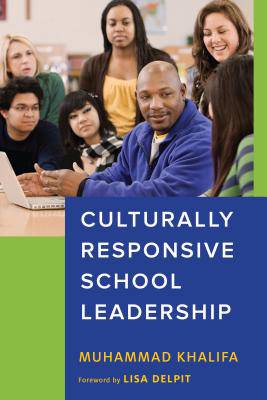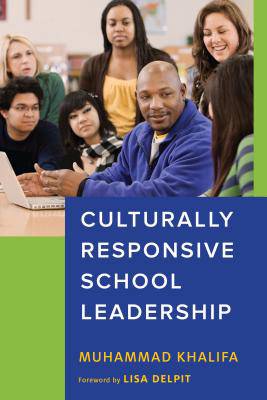
Door een staking bij bpost kan je online bestelling op dit moment iets langer onderweg zijn dan voorzien. Dringend iets nodig? Onze winkels ontvangen jou met open armen!
- Afhalen na 1 uur in een winkel met voorraad
- Gratis thuislevering in België vanaf € 30
- Ruim aanbod met 7 miljoen producten
Door een staking bij bpost kan je online bestelling op dit moment iets langer onderweg zijn dan voorzien. Dringend iets nodig? Onze winkels ontvangen jou met open armen!
- Afhalen na 1 uur in een winkel met voorraad
- Gratis thuislevering in België vanaf € 30
- Ruim aanbod met 7 miljoen producten
Zoeken
€ 41,45
+ 82 punten
Omschrijving
Culturally Responsive School Leadership focuses on how school leaders can effectively serve minoritized students--those who have been historically marginalized in school and society. The book demonstrates how leaders can engage students, parents, teachers, and communities in ways that positively impact learning by honoring indigenous heritages and local cultural practices. Muhammad Khalifa explores three basic premises. First, that a full-fledged and nuanced understanding of "cultural responsiveness" is essential to successful school leadership. Second, that cultural responsiveness will not flourish and succeed in schools without sustained efforts by school leaders to define and promote it. Finally, that culturally responsive school leadership comprises a number of crucial leadership behaviors, which include critical self-reflection; the development of culturally responsive teachers; the promotion of inclusive, anti-oppressive school environments; and engagement with students' indigenous community contexts. Based on an ethnography of a school principal who exemplifies the practices and behaviors of culturally responsive school leadership, the book provides educators with pedagogy and strategies for immediate implementation.
Specificaties
Betrokkenen
- Auteur(s):
- Uitgeverij:
Inhoud
- Aantal bladzijden:
- 232
- Taal:
- Engels
- Reeks:
Eigenschappen
- Productcode (EAN):
- 9781682532072
- Verschijningsdatum:
- 24/07/2018
- Uitvoering:
- Paperback
- Formaat:
- Trade paperback (VS)
- Afmetingen:
- 150 mm x 226 mm
- Gewicht:
- 340 g

Alleen bij Standaard Boekhandel
+ 82 punten op je klantenkaart van Standaard Boekhandel
Beoordelingen
We publiceren alleen reviews die voldoen aan de voorwaarden voor reviews. Bekijk onze voorwaarden voor reviews.











